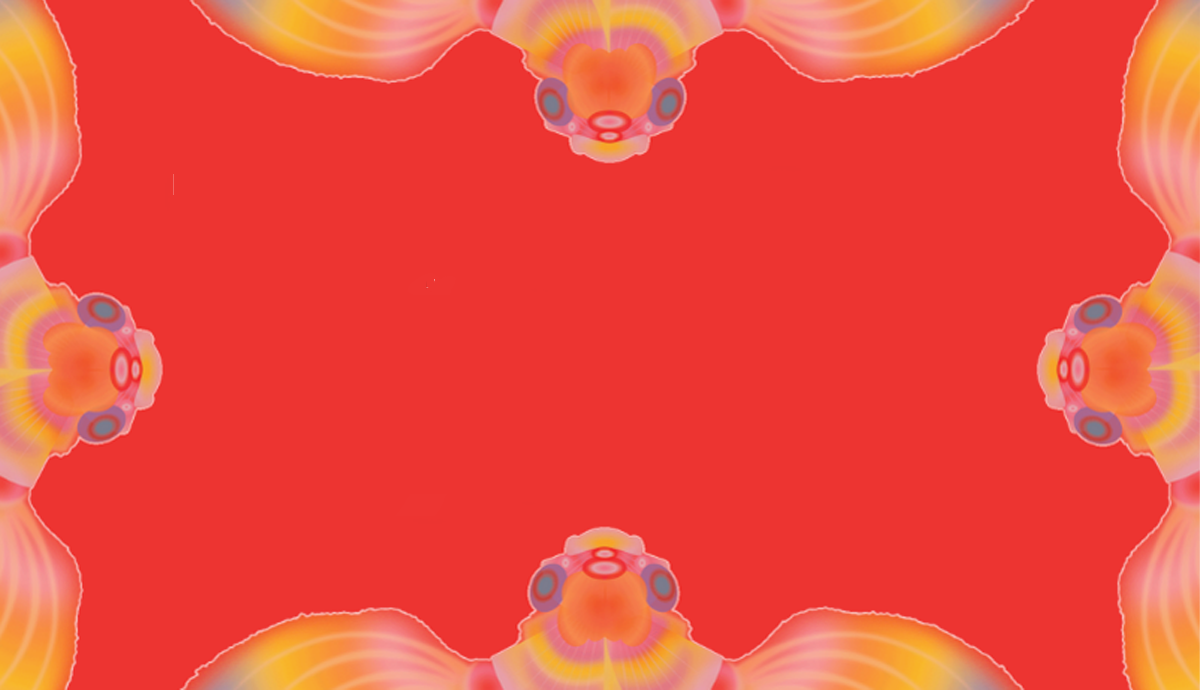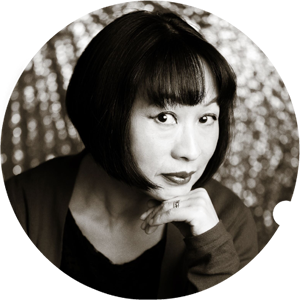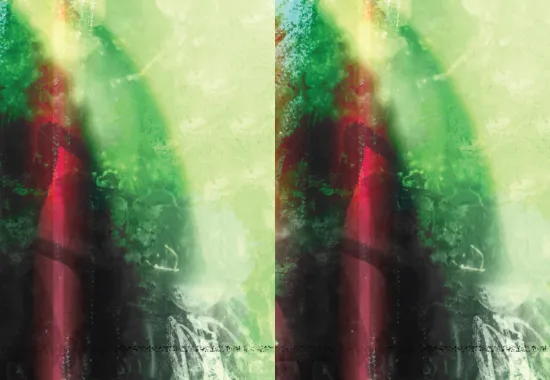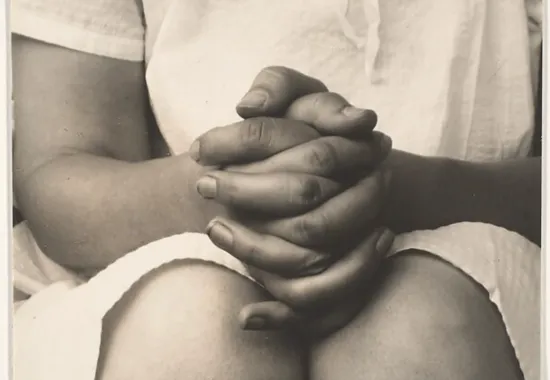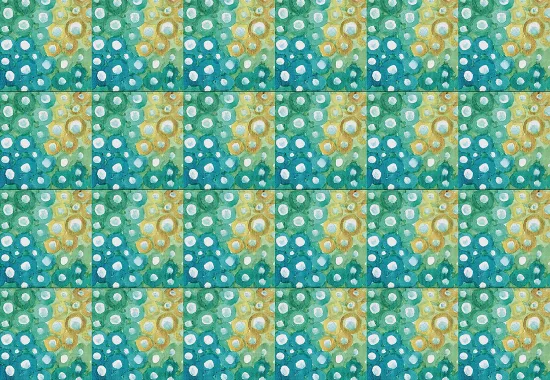A Review of Wendy Chen's Their Divine Fires
She looked down at the scissors in her hand, at how they burned under the setting sun, a silver fire setting her alight. Swiftly, she grabbed his braid with one hand, and with the other, she brought the scissors up to the nape of his neck.
She cut.
In this opening scene of Wendy Chen’s powerful, lyrical debut novel Their Divine Fires, a girl cut her older brother’s long braid at his urge, in a village in the central Hunan province near the capital city of Changsha, in 1917. The seemingly unremarkable act of haircutting embodies the seismic changes in China at the end of its last Dynasty and the beginning of a Republic. The long braids worn by men, also called the Manchu queue, forced on Han Chinese by their Manchuria conquerors in 1645, ridiculed as the pigtail of the Chinaman by the Westerners, is the symbol of the old, corrupted world. Educated young men like Da Ge (Yunlin) cut their long braids to announce to the world their determination to break free from the past and their hope for a brand-new future. Da Ge’s little sister Mei Mei (Yunhong), who cut her brother’s hair, is not only the willing accomplice to her brother, but also soon a full participant of her country’s history, a drop of water in the perilous history current. So do her daughter and granddaughters. And the past continues to follow and haunt the great-granddaughter, born and raised in the United Sates.
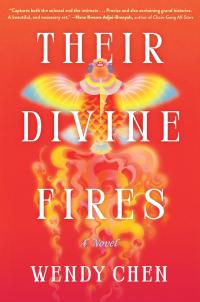 Their Divine Fires is an epic family saga that spans over one hundred years and two countries. It is about history, love, passion, loyalty, betrayal, and our desire to be free of our past. In the novel, four generations of women survive the formidable hardship during the tumultuous twentieth century in China: the warlord melee, the Communist-Nationalist civil war, the Japanese invasion, and the Cultural Revolution, each emerging with unspeakable loss and heartache, yet undampened spirit for life and future. The book is an intimate study of family relationships under the backdrop of a chaotic changing world, with a perspective of Chinese history rarely seen in American literature.
Their Divine Fires is an epic family saga that spans over one hundred years and two countries. It is about history, love, passion, loyalty, betrayal, and our desire to be free of our past. In the novel, four generations of women survive the formidable hardship during the tumultuous twentieth century in China: the warlord melee, the Communist-Nationalist civil war, the Japanese invasion, and the Cultural Revolution, each emerging with unspeakable loss and heartache, yet undampened spirit for life and future. The book is an intimate study of family relationships under the backdrop of a chaotic changing world, with a perspective of Chinese history rarely seen in American literature.
It turns out that cutting hair is only one of the many actions the characters take to be unburdened by the past. Later, Yunhong cuts her own hair, as many educated women do at the time. She does not admit Yuexin, the posthumous daughter from her beloved husband, killed in the revolution by her brothers and their comrades, as her own child. She disowns her Communist brothers to protect her parents from prosecution by the Guomindang government. Yuexin’s daughter Yonghong moves to the United States, and Yonghong’s twin sister Hongxing stays in China but is erased from the public conscious.
Perhaps the most heart wrenching is the women’s dealings of their birthmarks, “the same red birthmark on their chest—the size and shape of a thumbprint.” A central imagery of the book, this red birthmark symbolizes the women’s blood inheritance and their shared family bond:
It came from an old legend in her bloodline—from a story that told of a daughter who had been lost in the mountains. Years later, when her mother found her again, a matching mark bloomed on both their chests—so they would never lose each other again.
Nevertheless, the women try to break free. Yunhong, wishing to lift what she considered a curse, tries and fails to cut Yuexin’s birthmark, leaving behind a jagged scar. Hongxing’s birthmark seems to have faded, but the love of her life also bears a red birthmark, only it’s on her ankle. Emily, the American-born daughter of Yonghong, granddaughter of Yuexin, and great-granddaughter of Yunhong, unaware of the history, simply treats the birthmark as a suspicious skin ailment, and succeeds in having it removed. Perhaps she can now truly unload the weight of her family history and be free of its past. After all, Emily likes to hear stories about the future of China from her uncle (her mother’s cousin) more than stories about the past from her grandma.
Chen does a fantastic job presenting, truthfully, a picture of the Chinese youth throughout the twentieth century, why they fought the revolution, over and over again, and the history of the Communists and Nationalists. The educated youth, represented by Da Ge and Ge Ge, believed that they were fighting “for the soul of China,” and that “all things worth having come at a cost.” They strived for a world where “the rich will walk with the poor as brothers, the land shared freely by all.” Both brothers went to First Normal School in Changsha, the same school attended by Mao Zedong. Their schoolmates went to study in France, where they learned and introduced the Communism ideology back home to other educated young people hungry for a change. The book has strong relevance in today’s political climate. As observed by Yonghong and Hongxing, the fervor of the MAGA crowd is comparable to what they remember of the Cultural Revolution youth. It is perhaps ironic that there exists such a similarity between the Capitalist and the Communist crowds. It is dangerous for a society to pursue one single ideology, no matter how noble it may sound or seem, with a zeal that deems all other ideas inferior or unacceptable. The challenge for us is whether we will ever learn our lessons. History seems to indicate that we will not, but at least we have literature that can remind us.
An award-winning poet, Chen lends her poetic language to her debut and creates a stunning beauty. With those gorgeous lines Chen has gifted us with rich Chinese culture and tradition. One example is the naming of her characters. The three Zhang siblings start out as Da Ge, Ge Ge, and Mei Mei, and then they become Yunli, Yunjun, and Yunhong after they are forced (or choose) to sever their ties, except they still share the middle character Yun, Cloud, in their names, a bond they can never break. The names in the 1950s and 1960s are Leap Forward, Resist America, and 716 (the day when Chairman Mao swam across the Yangtze in 1966). Forever Red (Yonghong) became May, and Love of One’s Country (Aiguo) became Jack, after they moved to the U.S.
The other example is the telling of Chinese fairy tales. Da Ge gives Mei Mei a picture book about Leigong, the god of thunder, and Dianmu, the goddess of lightning. They are the murderer and the murdered, also a married couple mandated by the Jade Emperor, and “together, they create storms overhead,” and “forever intertwined—inseparable.” And the dragon, the guardian of the land and its people, but also the beast that Da Ge, Ge Ge and their revolutionary comrades aspire to destroy. Is it the same dragon? And the tigers that live high up in the cold mountains and “that can be just as ferocious as a dragon”—who are they exactly?
Chen has arrived as a new voice in the literary tradition of Mo Yan, Salman Rushdie, Gabriel García Márquez, and Toni Morrison, a voice we must continue to listen to.
Recommended
A Review of When We Were Gun: A Narrative Poetry Cycle by Deborah Schupack
A Review of Apostasies by Holli Carrell


